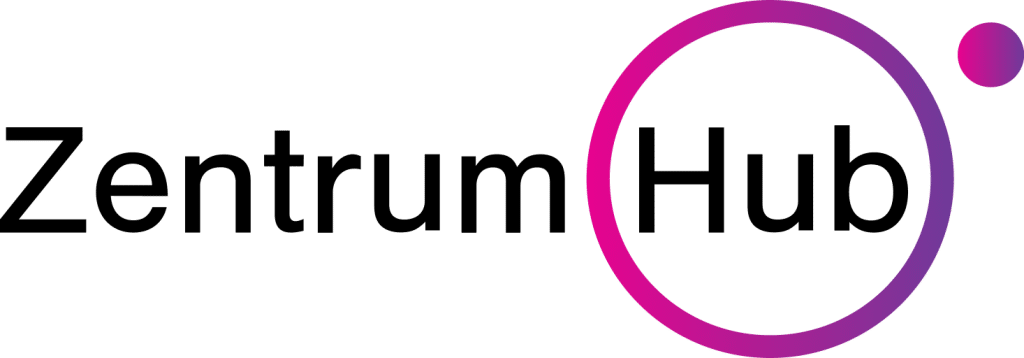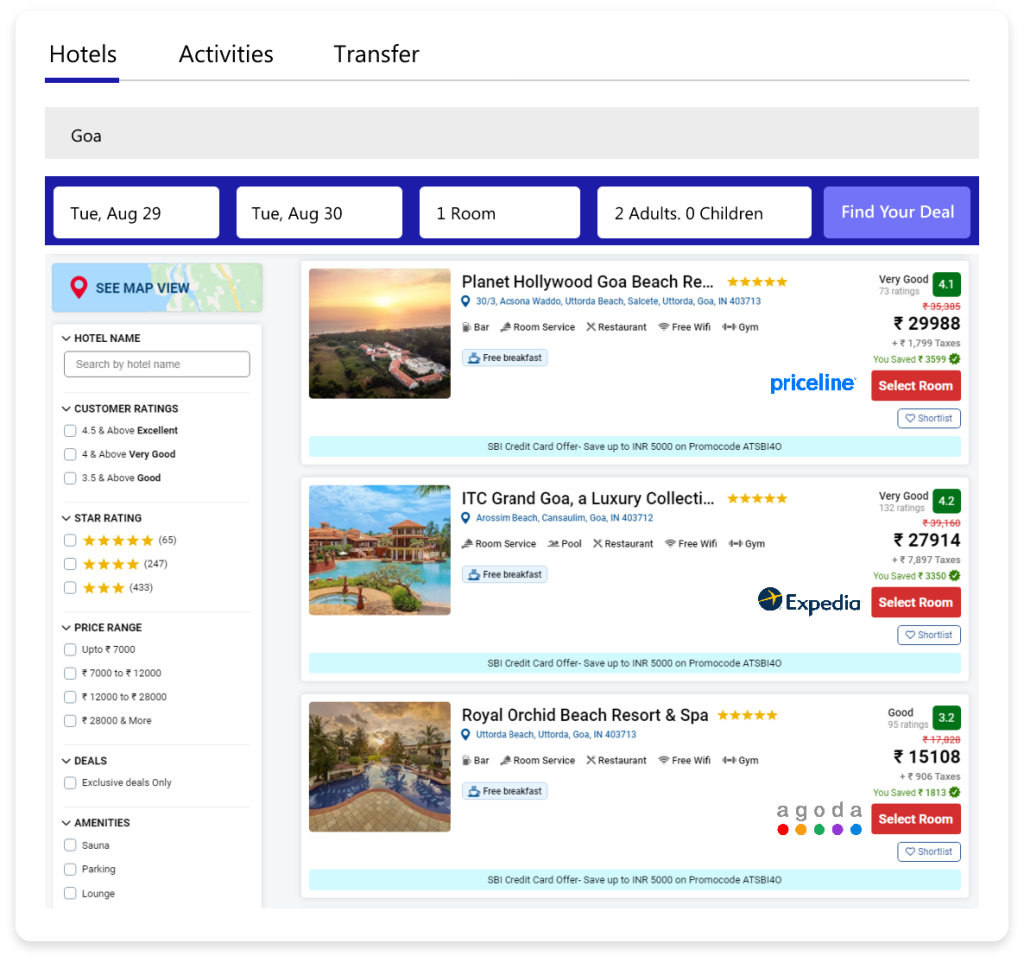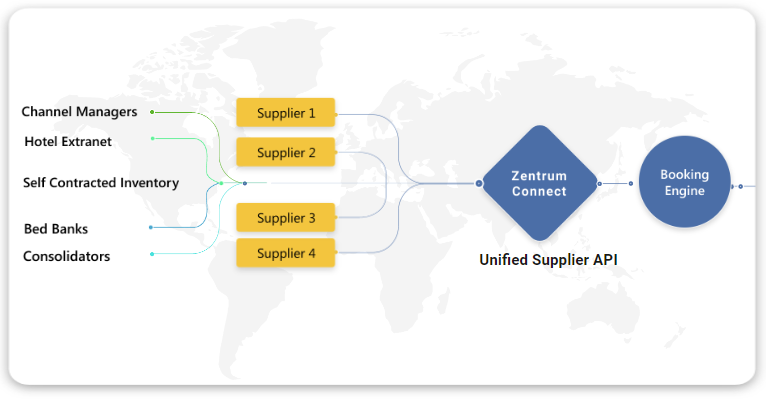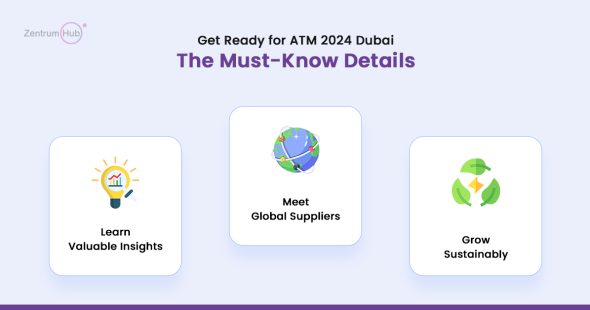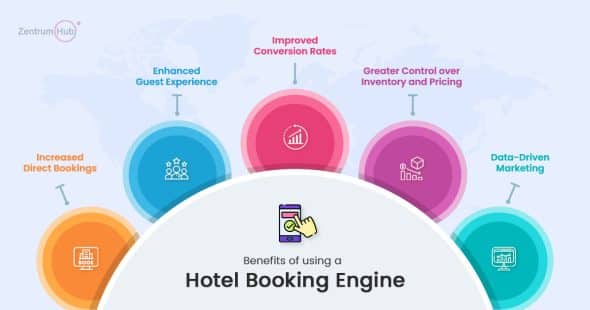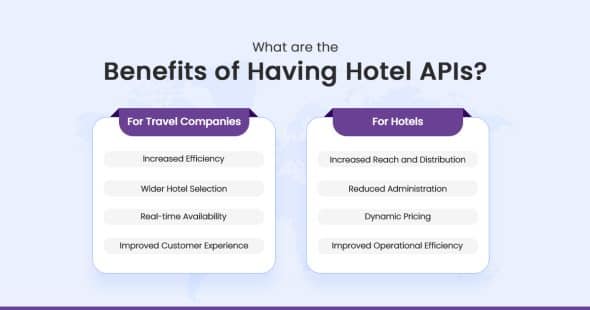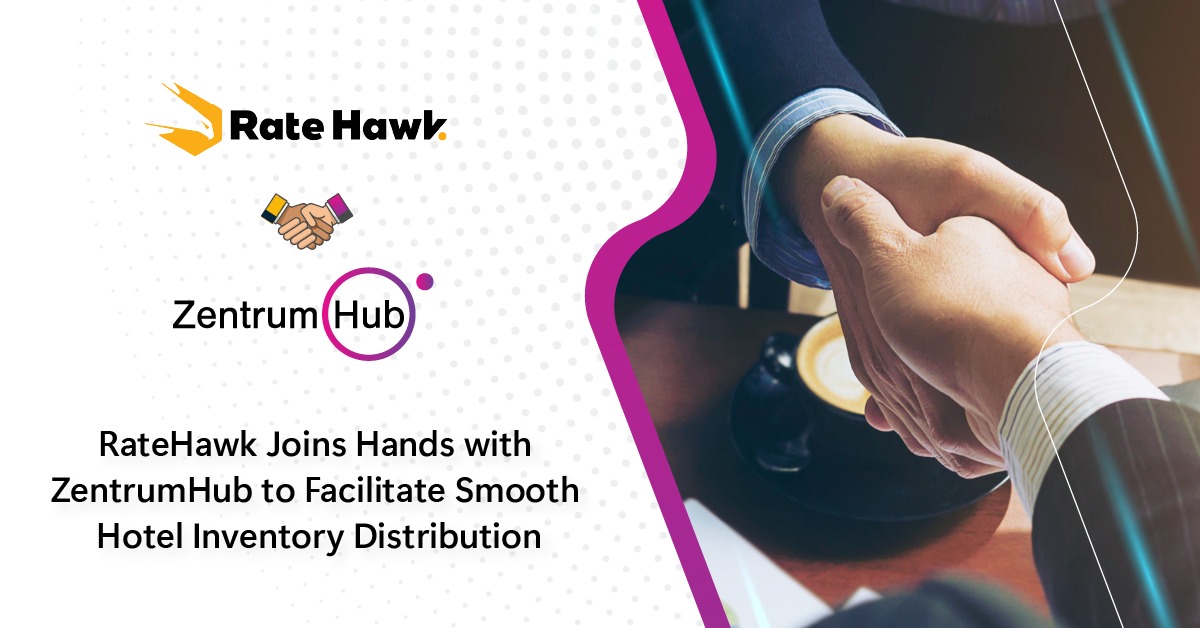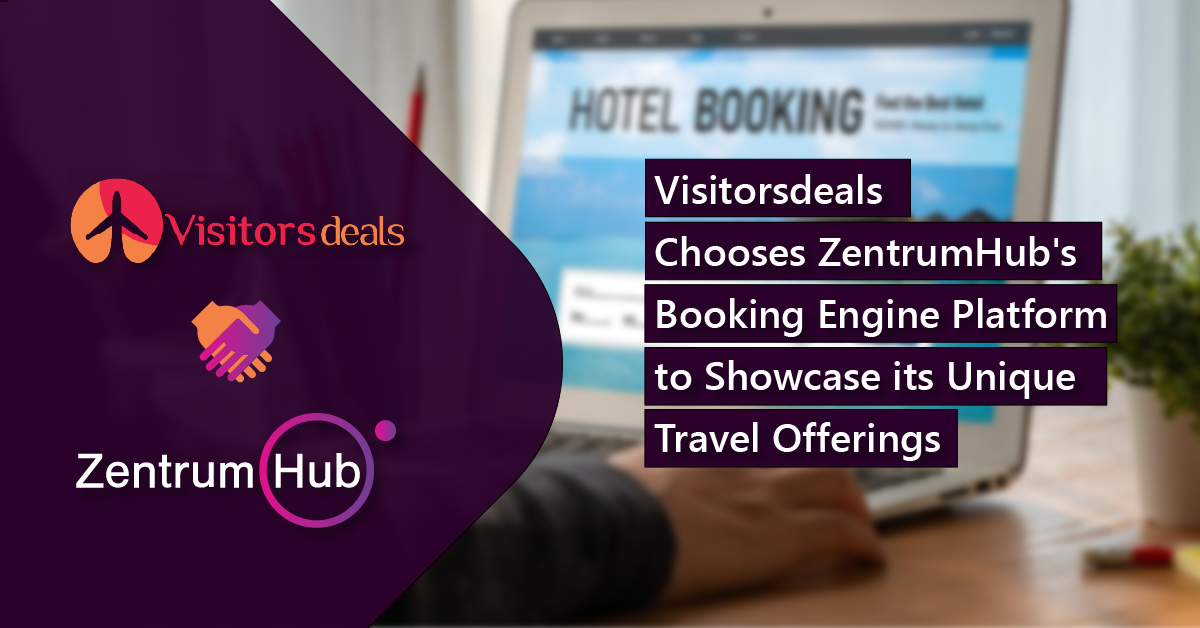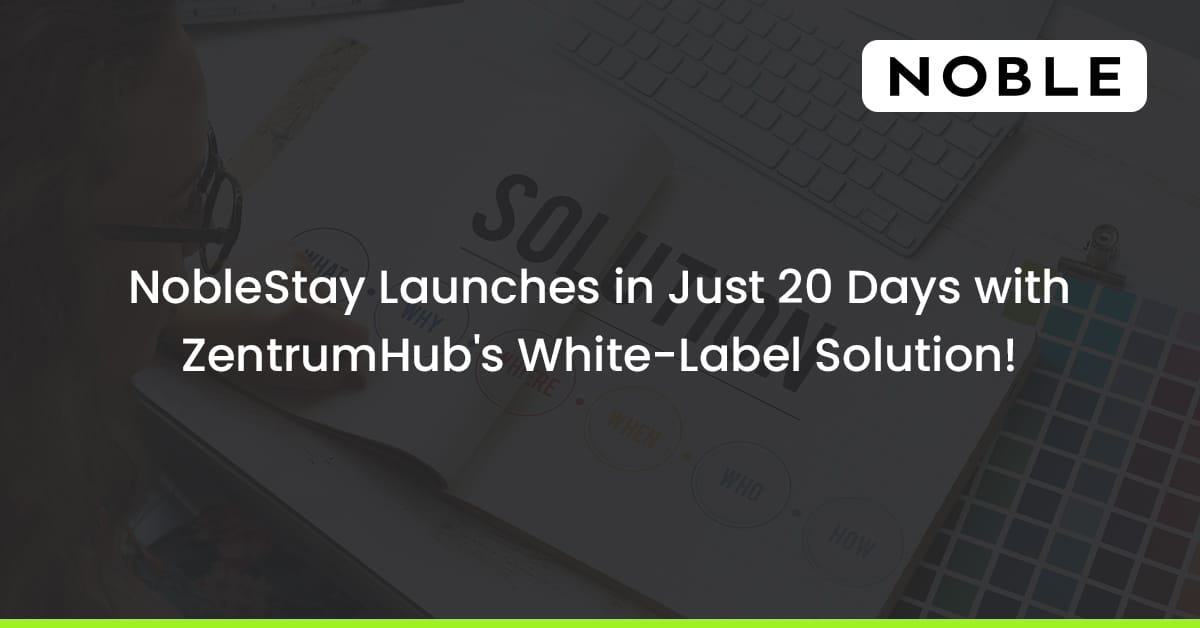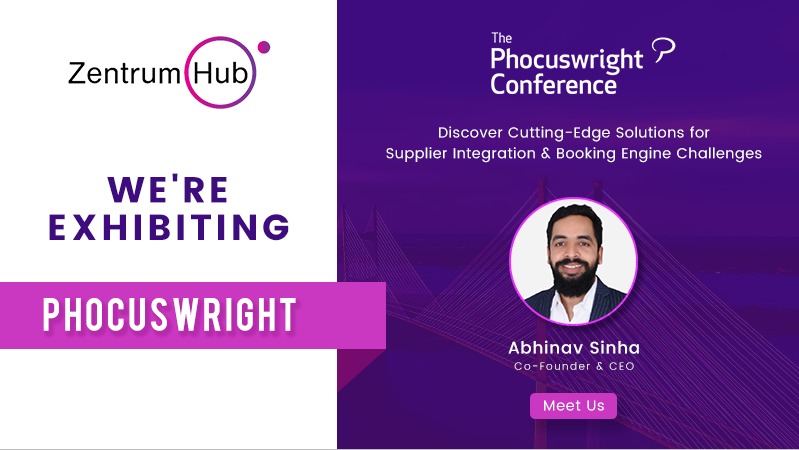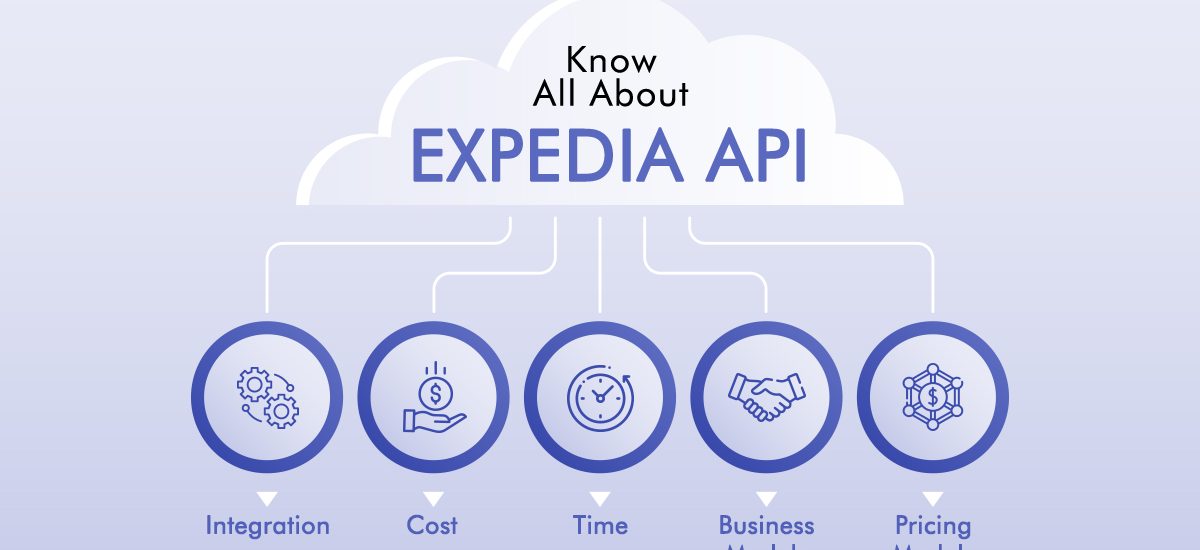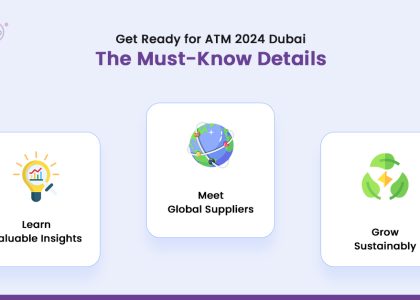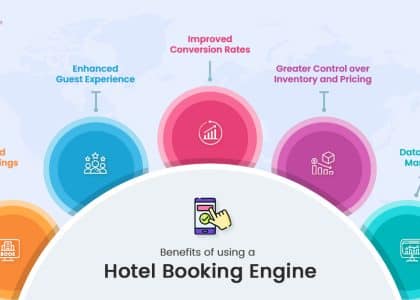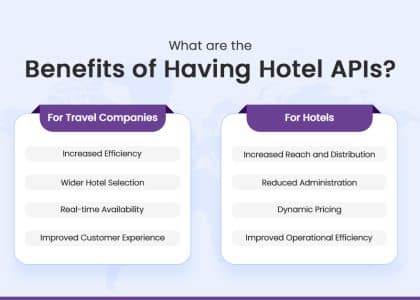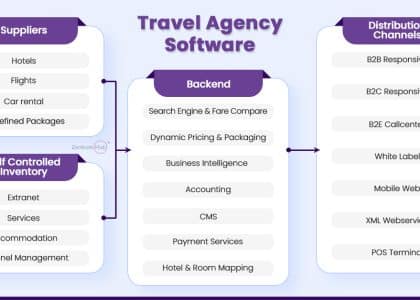Know All About Expedia API – Integration, Cost, Time, Business & Pricing Models
Let’s start with the primary question – What is Expedia API?
As you know, Expedia is a well-known online travel company offering a vast inventory of hotels, cars, and flights. It works as a travel agent and the supplier providing retail rates in the booking transaction. Under its brand name, Expedia provides net booking rates. Its API is designed for software developers who wish to develop apps that enable other businesses to integrate and share this inventory data.
In this era of big data, online travel agencies must equip themselves with the right analytics tools to make data-driven decisions and understand evolving consumer behaviors. We know data analysis can be time-consuming, so we are here to explain which data analytics OTAs must focus on to make data-driven decisions.
Different Types of Expedia API
Expedia’s APIs are tailored to specific business needs, and here are the 4 types of APIs that you can choose from
1. Rapid API
This API helps to build custom end-to-end lodging booking experiences for OTAs, the world’s leading airlines, and loyalty and membership programs.
It offers all the essential data you and your travelers require to book a property. Based on how you wish to build the user experience, you can access properties, region mappings, rates, and much more.
This API’s modular design helps quickly customize the traveler booking journey per your business needs.
Rapid API offers leading lodging inventory, with 700,000 properties across 250,000 destinations and over 25 different property types & their intelligent geography mappings make search smarter. It also provides over 29 million high-resolution property images and 21 million high-resolution room images optimized for increased conversion. It shows over 82 million traveler ratings and over 57 million traveler reviews across Expedia Group brands. Also, unique user-generated content is refreshed on the API every day.
2. Booking API
The Booking API helps to book rooms where the Price Check response confirms rates.
The Booking API’s primary itinerary method helps reserve the chosen property, room, occupancy, and rate. Payment details, like billing/cardholder contact information, are included in the request.
The successful booking response has the links to fetch the itinerary or cancel the reservation. You can make multi-room bookings for the same room type through a Shop request and pass the occupancy parameter separately for each room. You should include corresponding separate room instances in the array for each booking.
3. Shopping API
This helps get the rates and availability of different room types for chosen properties (maximum 250 properties per request). The response consists of rate details like promos, cancellation penalties, whether the rate is refundable, and a total price breakdown to meet your market’s price display requirements.
Multiple instances of the occupancy parameter can request numerous rooms of the same type. If one request has various calls for the same occupancy, the response will have a single set of rates. Only eight rooms may be requested at a time. You must contact the account manager about their group booking for more than eight rooms simultaneously.
3. Content API
These APIs provide you with access to content for all of Rapid’s properties.
Property Content
The Property Content returns a list of property IDs or complete details for the selected active properties in the chosen language.
This API can be used to retrieve property IDs or complete content based on your search criteria.
Inactive Properties
The properties can become inactive for the time being for various reasons; therefore, the Inactive Property API can be used to get the inactive property list from a provided whole date, helping you update your storage or cache to exclude unsellable or unbookable properties within Rapid.
Reasons to Integrate Expedia API With Your Travel Agency
Expedia API is a top-rated travel company with a vast network of suppliers and vendors, allowing you to offer multiple choices to your customers. This API lets your customers get detailed information about the room and destination, such as availability, reviews, pricing, etc. The booking experience becomes more seamless with proper content and a wide choice of relevant options.
Integrating such reputed APIs has multiple advantages, such as providing advanced search and booking functionalities, a wide range of travel products/services, and a comprehensive set of tools for business growth.
Let’s take a look at the features of Expedia API. It facilitates the following:
- Integrating advanced functionality into agents’ travel portals.
- Checking all hotel-related information like pricing, room availability, and ratings before booking or cancellation.
- Offering faster responses from multiple hotels to provide accurate and real-time availability with rates
- Receiving customer booking information in almost real-time.
- Reading, creating, and editing room types and rate plans without depending on any market manager.
Technical Requirements to Integrate Expedia API
It is crucial to have specific technical requirements, like TLS 1.2 for encryption, XML messages for bookings, and secure communication protocols to integrate any API. It is a time-consuming and cost-consuming task, even if you have a skilled in-house development team. So, travel businesses looking for suppliers like Expedia often choose supplier connectivity platforms like Zentrum Connect to quickly yet efficiently integrate the API and manage all its complexities.
The Cost, Time, and Steps to Integrate Expedia API
Integrating any API is a tricky process and requires a lot of expertise, but here are the surface-level steps that you will have to follow to become an Expedia API partner –
- First, you will have to register on the Expedia Partner Solutions website.
- Complete the API application form.
- Submit the form for review.
- Once your form is approved, you will receive an Expedia Partner ID and API key.
These steps may look quick and easy, but integrations take a lot of time and effort as each API has complexities, and every step should be taken carefully.
Talking about the cost, Expedia offers a different pricing structure based on specific business requirements. Several aspects, like desired content and services, monthly transaction volume, and customer or tech support, influence the cost. If you need a personalized quote, it’s advisable to contact Expedia Partner Solutions directly. Next, we will discuss the business and pricing models of Expedia API.
Business & Pricing Models of Expedia API
- Business Models
There are three business models with Expedia Group – Expedia Collect, Hotel Collect, & Expedia Traveler Preference, which will be specified in the contract with chains or properties.
- Expedia Collect (EC) or Merchant
Here, the payment is collected from the travelers at the time of booking, so this model is called “Pay Now.” Once the travelers check out, the property should send an invoice to Expedia Group with the payment owed for the given services.
- Hotel Collect (HC) or Agency or Property Collect
Here, the property collects payment from the traveler, also known as “Pay Later,” as the booking is done, but the payment is collected at the traveler’s check-out time. This business model allows travelers to book same-day and next-day reservations on Expedia.com and Hotels.com without a credit card. Expedia Group then collects the commission from travel agent’s credits.
- Expedia Traveler Preference or Dual or Flex
This business model allows travelers to choose between the above two models – whether to pay online during booking or pay later after the stay. It increases the booking chances. Travelers and the Expedia group prefer this more than others.
Expedia’s Pricing Models for End Customers
- Occupancy-based Pricing
The occupancy-based pricing (OBP) model is based on the number of people in a room. The properties should define a rate for each applicable occupancy. If a rate is not defined for a type of occupancy, then the next-defined rate, which is higher than the rate for the previous number of persons, will be automatically applied.
- Per-day Pricing
In this model, a room is assigned a daily rate for a fixed number of occupants. It is mainly by default two occupants, but it can be changed in the Partner Central system. Even if there is a single traveler, the rate will always be quoted for a fixed number of people, whereas travelers who want more than a set number of people in a room will be charged extra for the additional person.
- Day-of-arrival Pricing
This model is about an optional pricing attribute that can be enabled upon request by the property to Expedia or through Product API. This attribute fixes the rate on the arrival day of guests for the further number of days they are staying.
The property can fix the rate from a particular day for the rest of the stay with a “rate change flag”. The day-of-arrival pricing model can be enabled for rate plans with any of the above pricing models and without the length-of-stay (LOS) model, but this is not always the case.
- Per-day length-of-stay Pricing
This LOS model currently works with only Per-Day pricing (PDP). It allows properties to fix rates based on the length of stay per arrival date. The guests pay the price based on how many days they stay. Each date has a defined price for a 3-day stay, a 7-day stay, etc.
So, when you decide to integrate an API, there are a lot of decisions to make, like choosing the type, business, and pricing model, considering the time and cost to integrate it at your end, and completing formalities to become a partner. Even after all that, there is no guarantee that you will run it successfully from the day you go live.
Takeaway
Certainly, Expedia API offers several benefits, but integrating it in-house can take a toll on existing resources. Even if you have a skilled development team, it will take 2 to 3 months to go live. Therefore, it is better to choose a third-party solution like Zentrum Connect, which already has a unified platform for APIs from renowned global hotel suppliers.
With Zentrum Connect, you can go live on day 1 with Expedia API, but even other top-rated 50+ suppliers like TBO, HotelBeds, etc.
For a hassle-free, fastest, and efficient integration of Expedia API, reach out to ZentrumHub. Our experienced team can guide you through the process, ensuring a seamless connection and releasing your burden.
